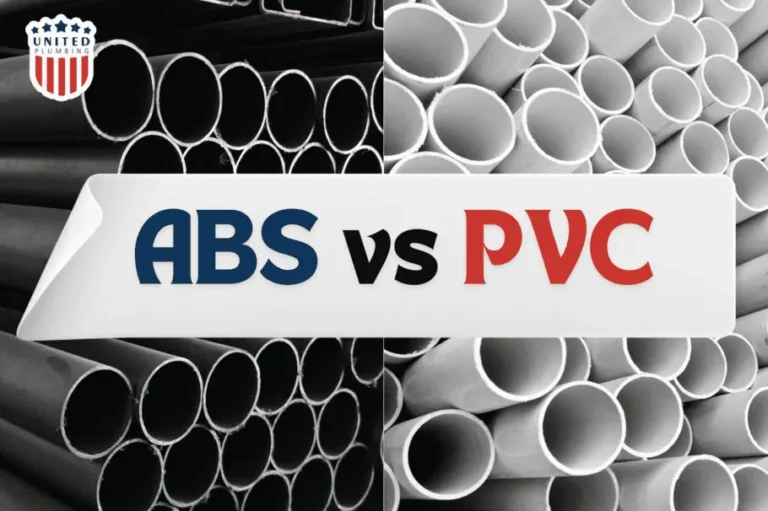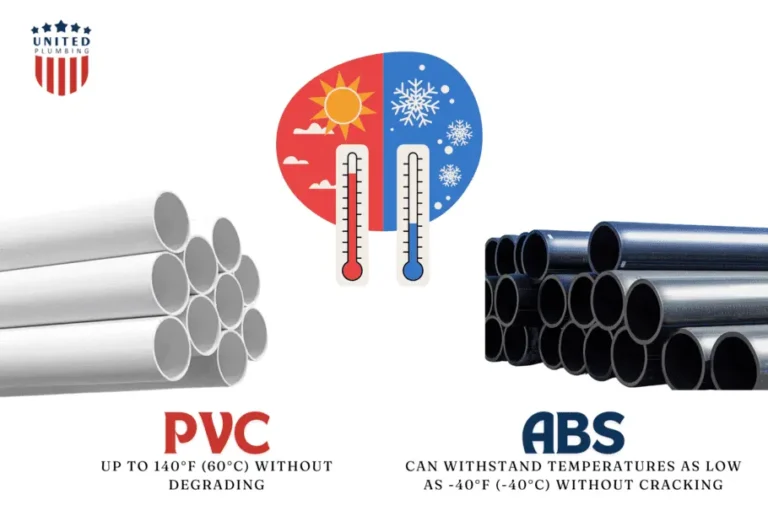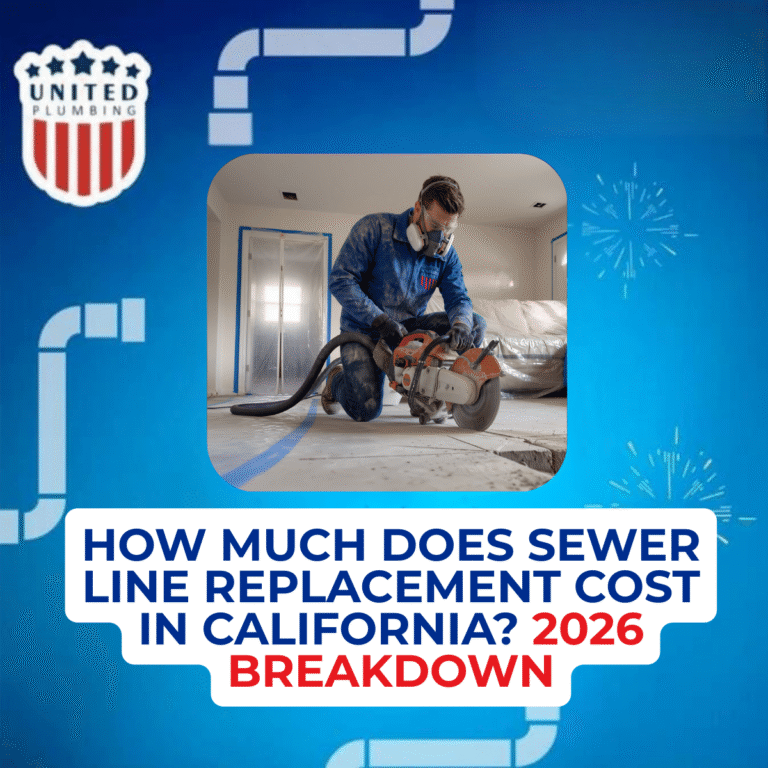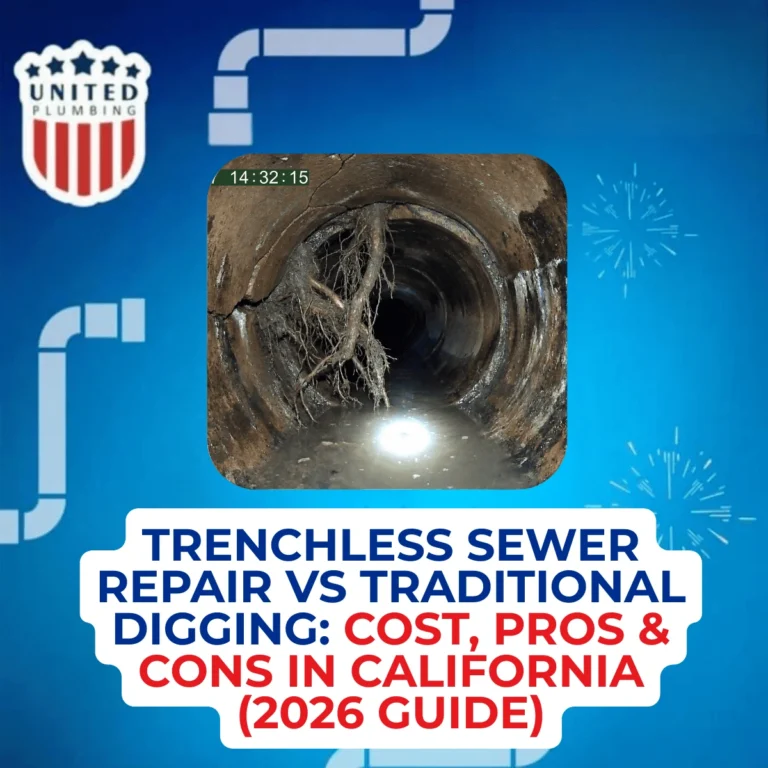FIVE-STAR TEAM WARRANTY &
SAME-DAY SERVICE
ABS vs PVC Pipe: Understanding the Differences
ABS and PVC pipes are two of the most commonly used types of pipes in plumbing and construction. While both are made from thermoplastic materials and are widely available, there are significant differences between them that make one better suited for certain applications than the other.

ABS (Acrylonitrile Butadiene Styrene) is a black plastic pipe that is commonly used for drain, waste, and vent piping systems. It is lightweight, easy to install, and resistant to impact and chemicals. On the other hand, PVC (Polyvinyl Chloride) is a white or gray plastic pipe that is often used for water supply systems. It is also lightweight and easy to install, but it is more rigid than ABS and can become brittle over time.
Understanding the differences between ABS and PVC pipes is important for anyone involved in plumbing or construction. In this article, we will explore the characteristics of each type of pipe, their advantages and disadvantages, and the applications for which they are best suited. Whether you are a homeowner, a contractor, or a DIY enthusiast, this article will provide you with the knowledge you need to make informed decisions about your plumbing and construction projects.
Comparing Material Properties
Chemical Composition
ABS and PVC pipes are both made of thermoplastic materials, but their chemical composition differs. ABS is a copolymer of acrylonitrile, butadiene, and styrene, while PVC is a polymer of vinyl chloride. ABS is more resistant to chemicals and solvents than PVC, which makes it a better choice for applications where exposure to chemicals is expected.
Durability and Strength
ABS pipes are stronger and more durable than PVC pipes. They have a high impact resistance and can withstand higher pressure than PVC pipes. ABS pipes are also more flexible, which makes them less likely to break or crack under stress. PVC pipes, on the other hand, are more brittle and prone to cracking under pressure.
Temperature Tolerance
ABS pipes have a lower melting point than PVC pipes, which makes them less suitable for high-temperature applications. PVC pipes, on the other hand, can handle high temperatures up to 140°F (60°C) without degrading. However, ABS pipes are more resistant to low temperatures and can withstand temperatures as low as -40°F (-40°C) without cracking.

In summary, ABS and PVC pipes have different properties that make them suitable for different applications. ABS pipes are more resistant to chemicals and solvents, stronger and more durable, but less suitable for high-temperature applications. PVC pipes are more suitable for high-temperature applications, but less resistant to chemicals and solvents and more prone to cracking under pressure.
Applications and Use Cases

Plumbing Applications
Both ABS and PVC pipes are commonly used in plumbing applications. ABS pipes are often used for drain, waste, and vent (DWV) systems, while PVC pipes are commonly used for water supply lines. PVC pipes are also suitable for DWV systems, but they are not recommended for use with hot water.
One advantage of ABS pipes is that they are more resistant to impact than PVC pipes, making them a good choice for areas with high foot traffic or where pipes may be exposed to potential damage. PVC pipes, on the other hand, are more flexible than ABS pipes, making them easier to install in tight spaces.
Cost Considerations
When it comes to cost, ABS pipes are generally less expensive than PVC pipes. However, the price difference can vary depending on the size and application of the pipes. PVC pipes may be more expensive, but they are also more durable and have a longer lifespan than ABS pipes.
Local Building Codes and Regulations
It is important to consider local building codes and regulations when choosing between ABS and PVC pipes. In some areas, ABS pipes may not be allowed for certain applications, while PVC pipes may be required for others. It is important to consult with a professional plumber or building inspector to ensure that the correct type of pipe is being used for the specific application.
In summary, both ABS and PVC pipes have their own unique advantages and disadvantages. When choosing between the two, it is important to consider the specific application, cost, and local building codes and regulations. Consulting with a professional plumber or building inspector can help ensure that the correct type of pipe is being used for the job.
Post views: 1070
Latest posts

How Much Does Sewer Line Replacement Cost in California? 2026 Breakdown
In 2026, the average sewer line replacement cost in California ranges from 6,500 to 22,000 dollars. The final price...

Trenchless Sewer Repair vs Traditional Digging: Cost, Pros & Cons in California (2026 Guide)
In California, trenchless sewer repair typically costs between $6,000 and $18,000, while traditional sewer line...


If you still have questions or need advice, please leave a request and we will contact you as soon as possible
Need a plumber and got no clue where to start?
(408) 539-6936Facing a plumbing issue? Get a FREE in-person estimate and quick solutions from our skilled technicians, ensuring your home runs smoothly again!
